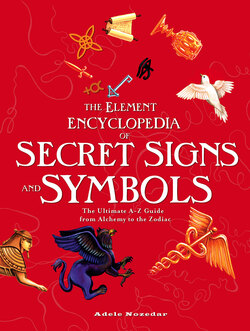Читать книгу The Element Encyclopedia of Secret Signs and Symbols - Adele Nozedar - Страница 114
CHESS
ОглавлениеChess originated in India. The checkerboard that chess is played on is, in itself, a secret symbol. It is symbolic of the world that we understand, that is composed of opposing forces. Also, the black and white colors of the symmetrically arranged squares stand for male/female, light/dark, positive/negative, good/evil in much the same way as the yin-yang sign does. It is no accident that the floor of the Freemason temple has the same construction as the chessboard, a constant reminder of both the harmony and tension between opposites. The pieces, too, are black and white, reinforcing this idea.
The chessboard has a further mystery that can be revealed in the number of the squares. Each side has eight squares. Eight is the number of infinity and of completion, and eight times eight makes 64, the number of cosmic unity. This is the magical number that, in sacred geometry, is the basis of temple construction.
The square shape of the board symbolizes the stability of the Earth and its four corners, the directions and the elements.
Superficially, chess might seem to be a relatively straightforward game, a simple series of different moves ascribed to each of the pieces. However, its complexities are only really revealed when the player is so familiar with the rules that he or she can carry them out automatically. Chess is plainly connected to war strategy and the ability to surprise the opponent. A good player will understand the need to sacrifice pieces in order to gain a greater advantage. Although the pawn may appear to be valueless, it is arguably one of the most important pieces on the board, and certainly the most prolific. We even use the word “pawn” to describe a person that we think is insignificant.
In Ingmar Bergman’s film The Seventh Seal, the knight, Antonius Block, invites the hooded figure of Death to join him in a game, despite the fact that Death warns him that he cannot win. Effectively, chess owes as much to chance as choice, and further underlines the dilemma between the concepts of fate versus free will. The knight knows that he will die, yet he persists in playing the game. Stanley Kubrick, too, believed that his skill as a chess player gave him the discipline to think rationally and to see the bigger picture, an invaluable skill for a film director. The detachment and lack of emotion required by the talented player is synonymous, for many, with an idealized, Zen approach to life.
For the Celts, the game of chess was called “intelligence of the wood.” It was the game of kings and the stakes were high. The game therefore symbolizes the intellect of the king, despite the fact that the most versatile piece on the board is the queen.
